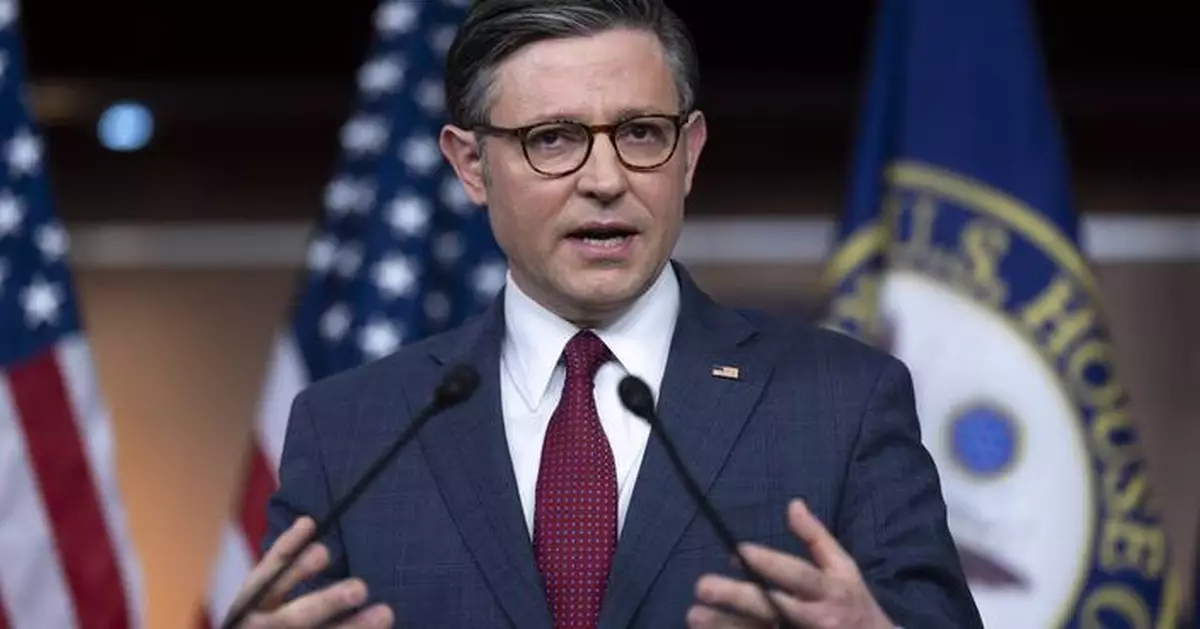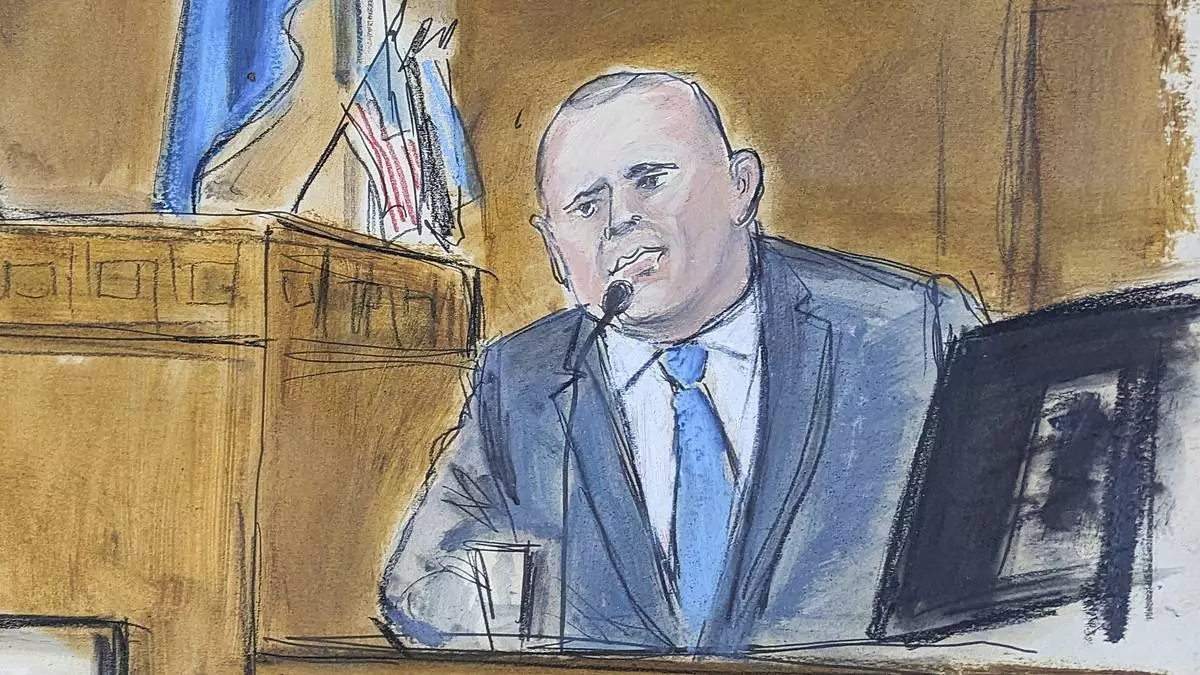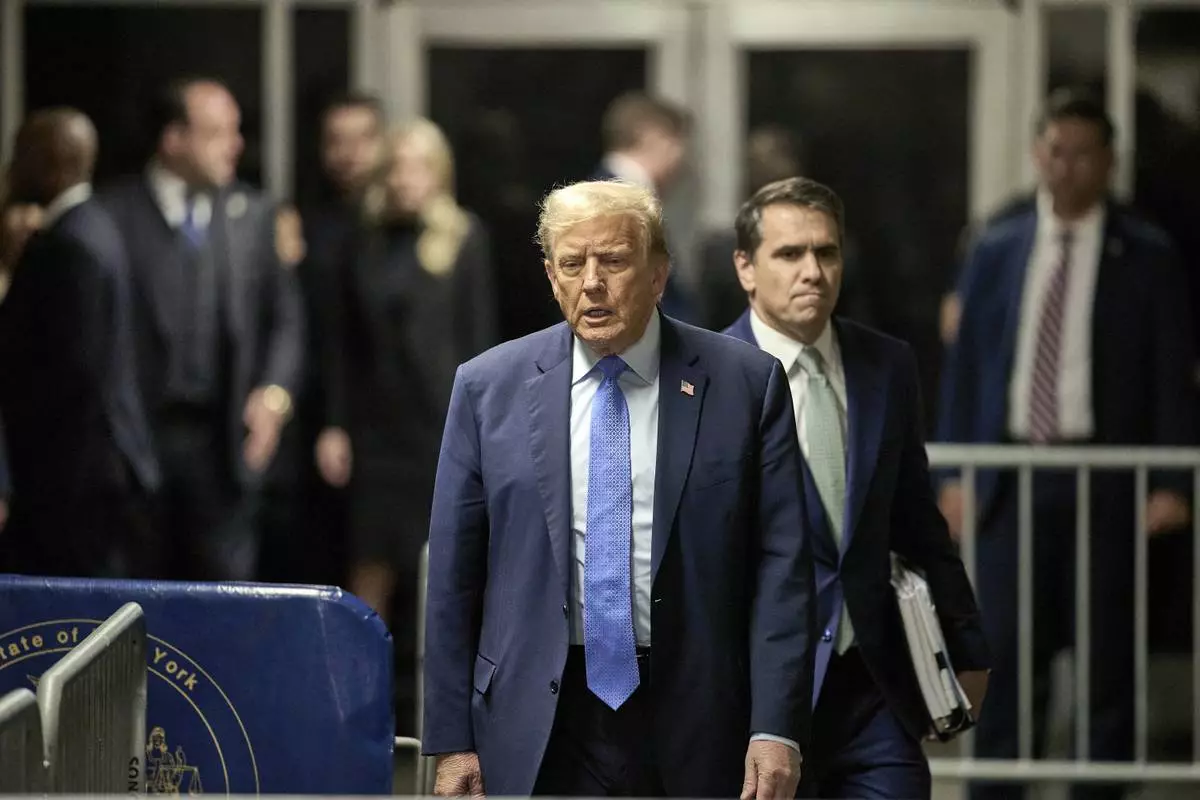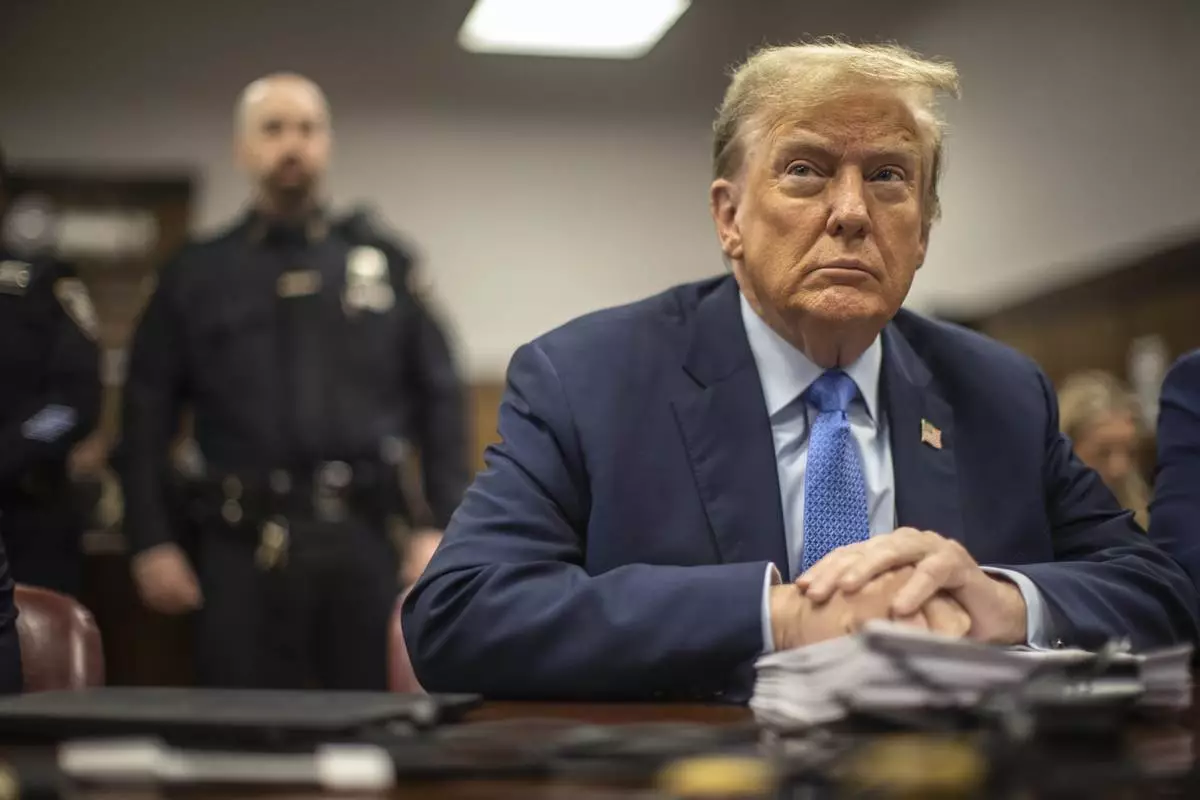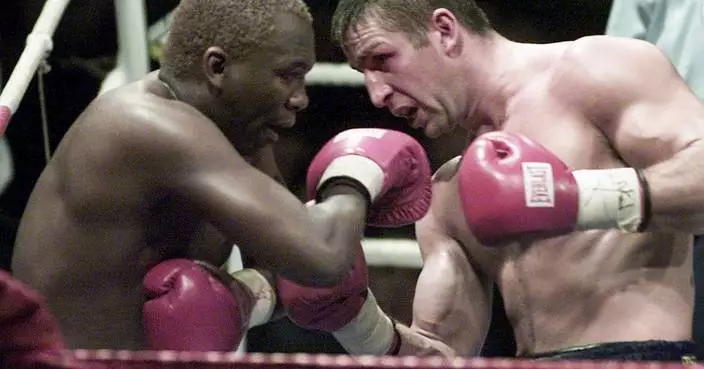WASHINGTON (AP) — President Joe Biden said Wednesday he strongly supports a proposal from Republican House Speaker Mike Johnson to provide aid to Ukraine, Israel and Taiwan, sending crucial bipartisan support to the precarious effort to approve $95 billion in funding for the U.S. allies this week.
Before potential weekend voting, Johnson was facing a choice between potentially losing his job and aiding Ukraine. He notified lawmakers earlier Wednesday that he would forge ahead despite growing anger from his right flank. Shortly after Johnson released the aid proposals, the Democratic president offered his emphatic support for the package.
“The House must pass the package this week, and the Senate should quickly follow,” Biden said. “I will sign this into law immediately to send a message to the world: We stand with our friends, and we won’t let Iran or Russia succeed.”
After agonizing for days over how to proceed on the package, Johnson pushed ahead on a plan to hold votes on three funding packages — to provide about $61 billion for Ukraine, $26 billion for Israel and $8 billion to allies in the Indo-Pacific — as well as several other foreign policy proposals in a fourth bill. The plan roughly matches the amounts that the Senate has already approved.
The bulk of the money for Ukraine would go to purchasing weapons and ammunitions from U.S. defense manufacturers. Johnson is also proposing that $9 billion of economic assistance for Kyiv be structured as forgivable loans, along with greater oversight on military aid, but the decision to support Ukraine at all has angered populist conservatives in the House and given new energy to a threat to remove him from the speaker’s office.
Casting himself as a “Reagan Republican," Johnson told reporters: “Look, history judges us for what we do. This is a critical time right now.”
The votes on the package are expected Saturday evening, Johnson said. But he faces a treacherous path to get there.
The speaker needs Democratic support on the procedural maneuvers to advance his complex plan of holding separate votes on each part of the aid package. Johnson is trying to squeeze the aid through the House’s political divisions on foreign policy by forming unique voting blocs for each issue, then sewing the package back together.
Under the plan, the House would also vote on bill that is a raft of foreign policy proposals. It includes legislation to allow the U.S. to seize frozen Russian central bank assets to rebuild Ukraine; to place sanctions on Iran, Russia, China and criminal organizations that traffic fentanyl; and to potentially ban the video app TikTok if its China-based owner doesn’t sell its stake within a year.
Sen. Maria Cantwell, the Democratic chair of the Senate Commerce Committee, said in a statement she was “very happy” that the House bill had extended the time period for ByteDance to sell TikTok. She had successfully pushed to extend the period from six months to a year, saying it would give the company enough time to find a buyer.
House Democratic Leader Hakeem Jeffries said he planned to gather Democrats for a meeting Thursday morning to discuss the package “as a caucus, as a family, as a team.”
“Our topline commitment is ironclad,” he told reporters. "We are going to make sure we stand by our democratic allies in Ukraine, in Israel, in the Indo-Pacific and make sure we secure the humanitarian assistance necessary to surge into Gaza and other theaters of war throughout the world.”
The House proposal keeps intact roughly $9 billion in humanitarian aid for civilians in Gaza and other conflict zones. However, progressive Democrats are opposed to providing Israel with money that could be used for its campaign into Gaza that has killed thousands of civilians.
“If they condition the offensive portion of the aid, that would be a conversation, but I can’t vote for more aid to go into Gaza and continue to kill people,” said Rep. Pramila Jayapal, the chair of the Congressional Progressive Caucus.
Meanwhile, the threat to oust Johnson from Rep. Marjorie Taylor Greene, a Republican of Georgia, gained steam this week. One other Republican, Rep. Thomas Massie of Kentucky, said he was joining Greene and called for Johnson to resign. Other GOP lawmakers have openly defied Johnson's leadership.
“I want someone that will actually pursue a Republican agenda and knows how to walk in the room and negotiate and not get tossed around the room like some kind of party toy,” Greene said. But she added that she would not move on the motion to vacate Johnson as speaker before the vote on foreign aid.
In an effort to satisfy conservatives, Johnson offered to hold a separate vote on a border security bill, but conservatives rejected that as insufficient. Rep. Chip Roy of Texas called the strategy a “complete failure.”
“We’re going to borrow money that we don’t have — not to defend America, but to defend other nations. We’re going to do nothing to secure our border," said Rep. Bob Good, the chair of the ultraconservative House Freedom Caucus.
With the speaker fighting for his job, his office went into overdrive trumpeting the support rolling in from Republican governors and conservative and religious leaders for keeping Johnson in office.
“Enough is enough,” said Georgia Gov. Brian Kemp on social media. He said “instead of bickering amongst themselves” the House Republicans should do their "job and vote on the important issues facing our nation.”
At the same time, the speaker’s office was tidying up after Johnson said on Fox News that he and Trump were “100% united” on the big agenda items, when in fact the Republican presidential nominee, who had just hosted the House leader in a show of support, opposes much overseas aid as well as a separate national security surveillance bill.
Johnson told CNN on Wednesday that he thought Trump, if elected president, would be “strong enough that he could enter the world stage to broker a peace deal” between Ukraine and Russia.
Yet Johnson's push to pass the foreign aid comes as alarm grows in Washington at the deteriorating situation in Ukraine. Johnson, delaying an excruciating process, had waited for over two months to bring up the measure since the Senate passed it in February.
“Ukraine is on the verge of collapsing,” said Rep. Michael McCaul, the Republican chair of the House Foreign Affairs Committee.
In a hearing on Wednesday, Pentagon leaders testified that Ukraine and Israel both desperately need military weapons.
“We’re already seeing things on the battlefield begin to shift a bit in Russia’s favor," said Defense Secretary Lloyd Austin.
The House's version of the aid bill pushes the Biden administration to provide long-range ATACMS (Army Tactical Missile Systems) to Ukraine, which could be used to target Russian supply lines.
The U.S. has resisted sending those weapons out of concerns Moscow would consider them escalatory, since they could reach deeper into Russia and Russian-held territory. The House legislation would also allow the president to decline to send the ATACMS if it is against national security interests, but Congress would have to be notified.
Still, there was acknowledgement in Washington that Johnson could soon be out as speaker — a job he has held less than five months since Rep. Kevin McCarthy was ousted from the office.
Rep. Don Bacon, a Nebraska Republican, said this week that if Johnson is ousted, he would "be known in history as the man who did the right thing even though it cost him a job.”
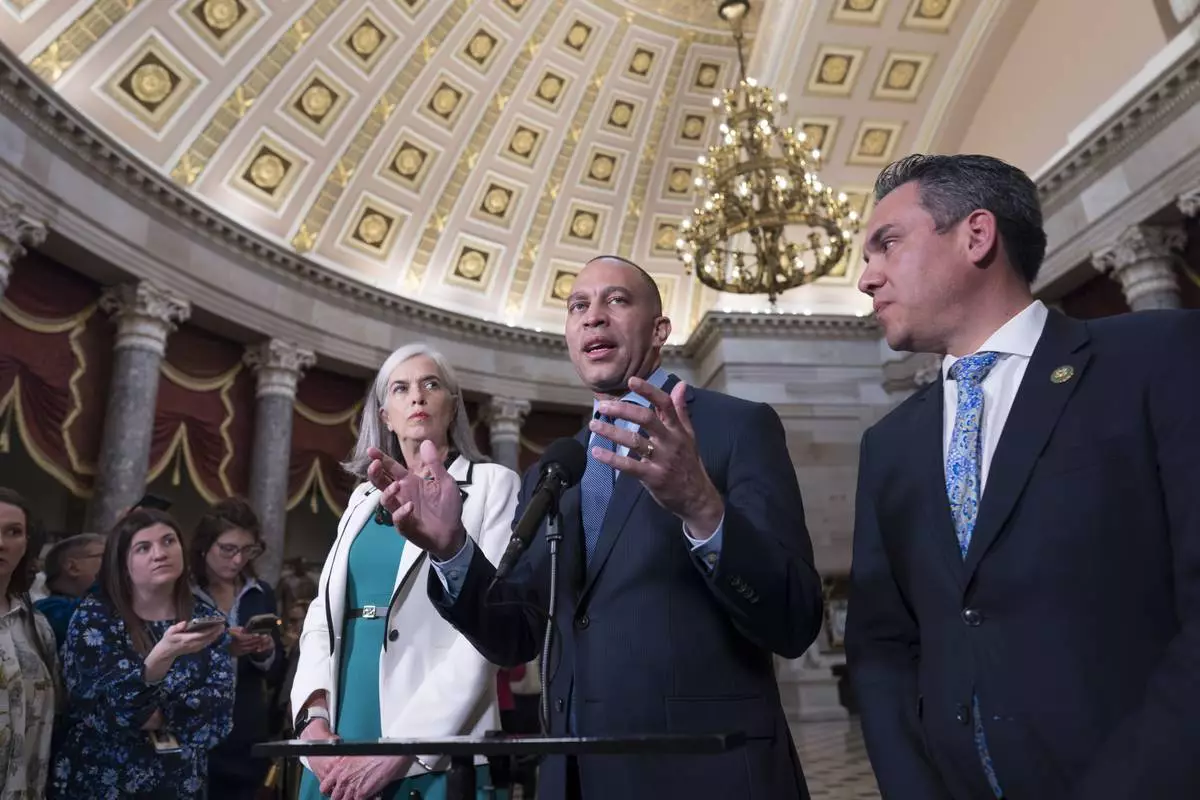
House Minority Leader Hakeem Jeffries, D-N.Y., center, flanked by Rep. Katherine Clark, D-Mass., the Democratic whip, left, and Rep. Pete Aguilar, D-Calif., the Democratic Caucus chair, speaks to reporters about the need for aid to allies Ukraine, Israel and Taiwan following weeks of inaction, at the Capitol in Washington, Wednesday, April 17, 2024. (AP Photo/J. Scott Applewhite)
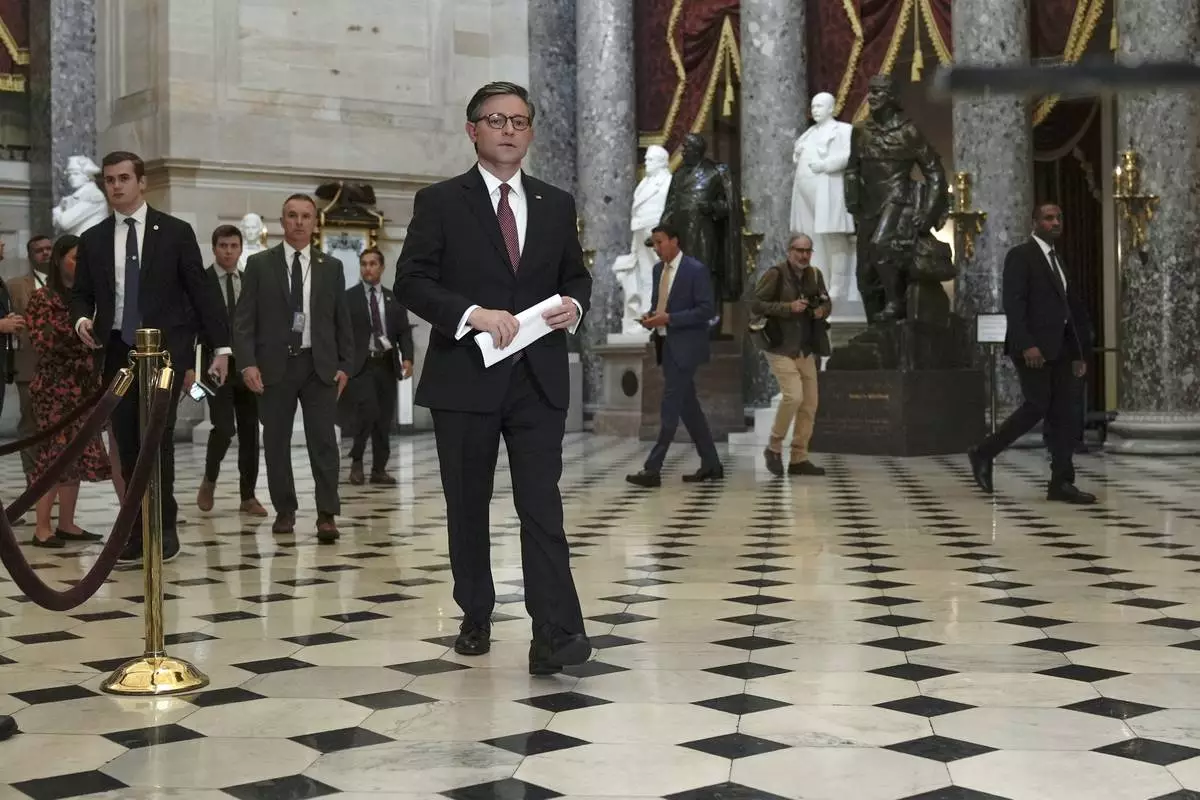
Speaker of the House Mike Johnson, R-La., arrives to discuss his proposal of sending crucial bipartisan support to aid Ukraine, Israel and Taiwan after weeks of inaction on Capitol Hill Wednesday, April 17, 2024, in Washington. (AP Photo/Mariam Zuhaib)
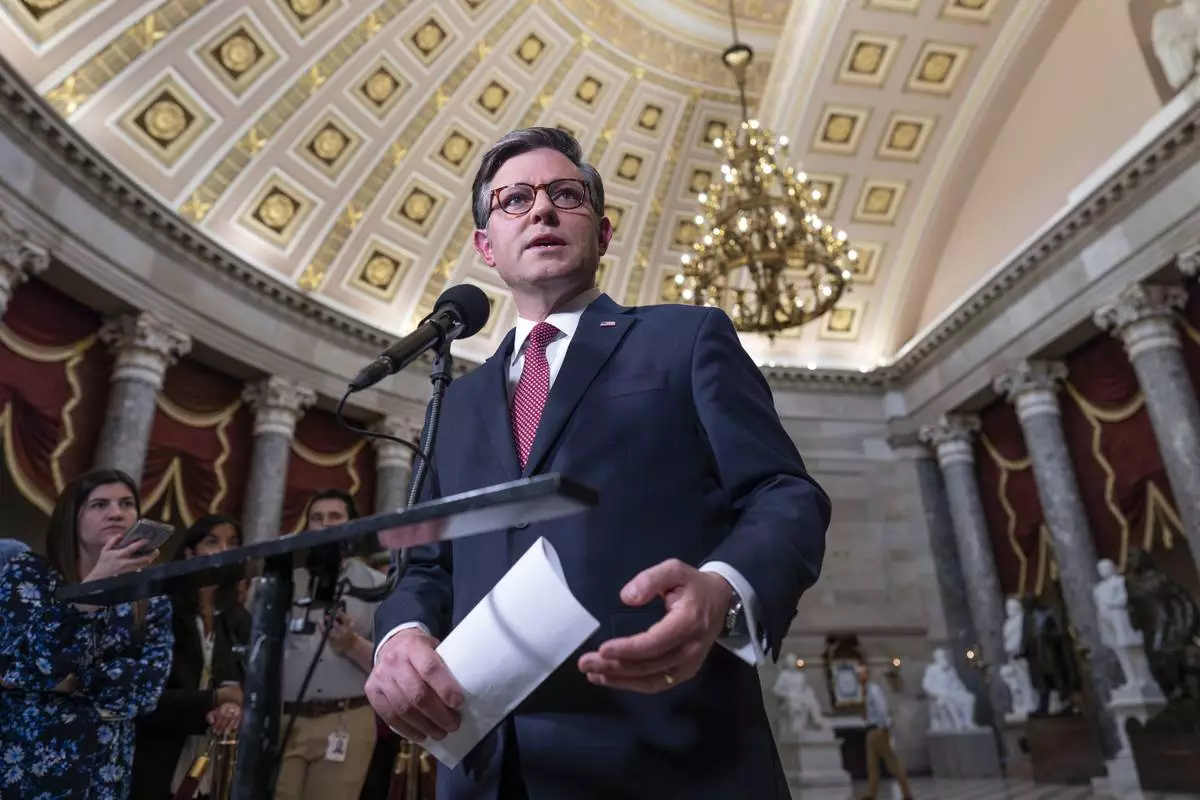
Speaker of the House Mike Johnson, R-La., speaks with reporters to discuss his proposal of sending crucial bipartisan support to aid Ukraine, Israel and Taiwan after weeks of inaction, at the Capitol in Washington, Wednesday, April 17, 2024. (AP Photo/J. Scott Applewhite)
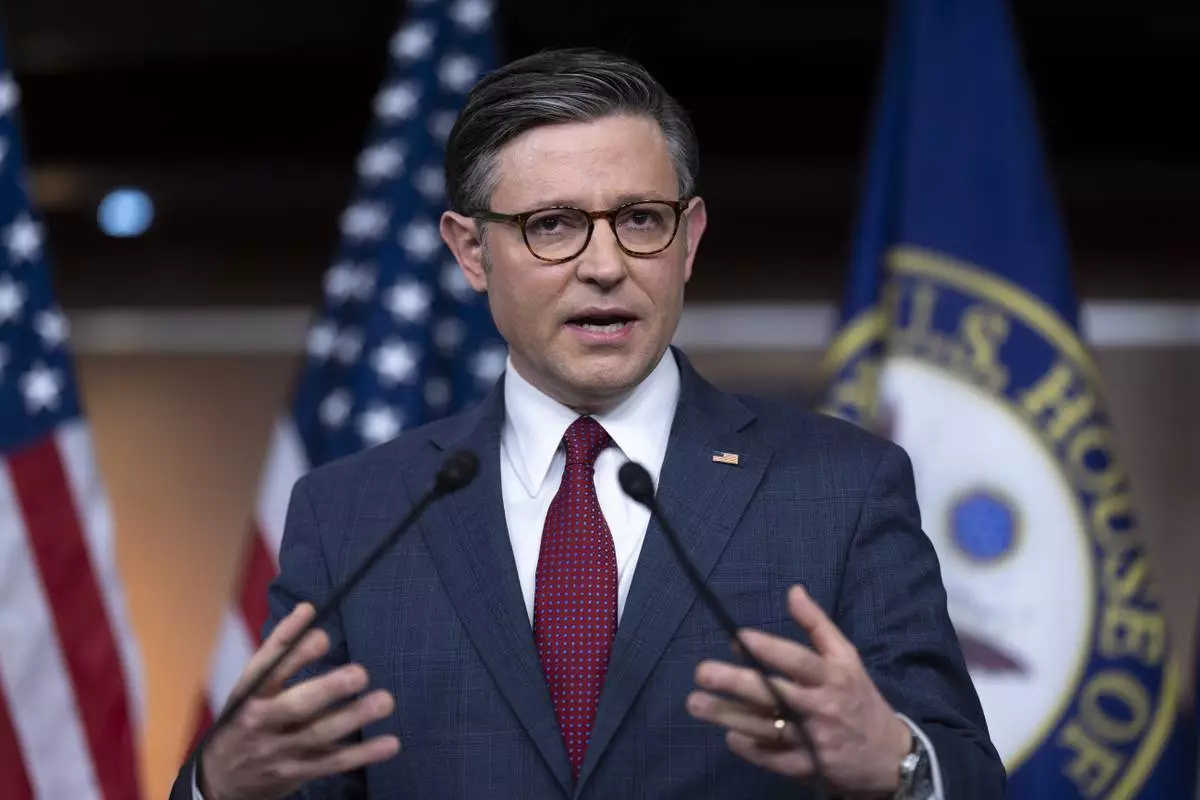
Speaker of the House Mike Johnson, R-La., and the House Republican leadership meet with reporters following a closed-door Republican strategy session as Johnson pushes towards separate votes on aid for Israel and Ukraine, at the Capitol in Washington, Tuesday, April 16, 2024. (AP Photo/J. Scott Applewhite)


